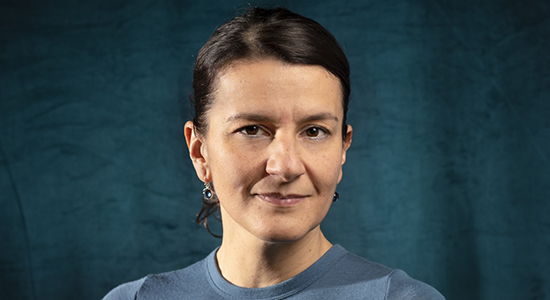Environmental Epidemiology group
The Environmental Epidemiology group conducts research and teaching in general epidemiological methods based on the use of Danish health registers and clinical databases, with specific research focus on environmental epidemiology, cancer screening evaluation, human biomonitoring, and occupational epidemiology.

The group conducts epidemiological research to examine health effects of environmental exposures: air pollution, road traffic noise, wind turbine noise, built environment, green- and blue- spaces, etc. Health outcomes include mainly chronic diseases in the aging population: chronic respiratory (asthma and COPD) and cardiovascular disease, stroke, lung and breast cancer, diabetes, dementia, all-cause mortality, etc.
The group utilizes unique possibilities of combining data from large Danish cohorts and nationwide administrative data, with historical exposure data based on residential address history and health data from national registries. Research with these large and complex data characterized with multiple environmental exposures that change over time and which are highly correlated with each other, demands advanced epidemiological and statistical methods. Environmental epidemiology group also conducts research in occupational epidemiology, specifically in examining health effects related to night shift work.
The group hosts a research group on screening, with focus on breast cancer and cervical cancer, under leadership of Elsebeth Lynge. This research seeks to provide a comprehensive framework and evidence base for decision making about screening possibilities, and has developed an expertise in epidemiological and statistical methods in analyses of complex screening data.
Professor Lisbeth E. Knudsen is a Danish contact person for the large European project Human Biomonitoring for Europe (HBM4EU) still publishing and ethics advisor in the succeeding project PARC- Partnership for the Assessment of Risks from Chemicals. Lisbeth is the chair of the institutional Research Ethics Committee of Science and Health. Lisbeth also chairs The regional Health Research Ethics Committee F, that approves Medical research projects
PCBs in the homes and exposure of residents in polluted housing in Brøndby Strand is a project led by the National Building Research Institute with the participation of the National Research Center for Occupational Health and the University. We have measured PCB in air, dust, surfaces, blood and wipes from hand washing and bracelets that absorb PCB. Data is under analysis and we find exposures that support that you cannot stay in these apartments.
The project is financed by the Landbyggefonden via the housing companies involved. 2017-2020.
The European Human Biomonitoring Initiative (HBM4EU) is a joint effort of 26 countries and the European Commission, co-funded by Horizon 2020.
For more information visit the HBM4EU website
The Placenta Project is a Danish research project which aims to examine the possible placental transfer of various toxic substances.
The project has a Danish home page.
COnsortium to Perform Human biomonitoring on a European Scale, COPHES, (FP7 2009-2012), half of the expenses for sampling and analysis nationally to be covered by DEMOCOPHES EU Life+ and further funding from the ministries of Health, Food and environment, each contributing with 1/6th of the expenses.
For more information please visit the COPHES website.
HOPE: Endocrine disruption by pesticides. Research financed by the Environmental Protection Agency Pesticide Fund. 2009-2012.
Nano TEST is a research project under the EU Seventh Framework Programme for Health. The objective is to develop alternative testing strategies and high-throughput toxicity testing protocols using in vitro and in silico methods essential for the risk assessment of nanoparticles used in medical diagnostics.
For further information please visit the Nano TEST website.
Newborns and Genotoxic exposure risks - is an Integrated project conducted within the European Union's 6th Framework Programme, priority area Food Quality and Safety. Its objective is to investigate the role of prenatal and early-life exposure to genotoxic chemicals present in food and the environment in the development of childhood cancer and immune disorders.
NewGeneris conducts research in the development and application of biomarkers of dietary exposure to genotoxic and immunotoxic chemicals and of biomarkers of early effects, using mother-child birth cohorts and biobanks.
ReProTect is a European research collaboration with 35 partners. Its objective is to develop a novel approach in hazard and risk assessment of reproductive toxicity by combination and application of in vitro, tissue and sensor technologies.

Research Group Leader
Zorana Jovanovic Andersen
Professor with special responsibilities
E-mail: vlq961@sund.ku.dk
Phone: +45 35 32 76 69
Researchers
| Name | Title | Phone | |
|---|---|---|---|
| Andersen, Zorana Jovanovic | Professor | +4535327669 | |
| Knudsen, Lisbeth E. | Professor | +4535327653 | |
| Lim, Youn Hee | Associate Professor | +4535336862 | |
| Loft, Steffen | Professor | +4535327649 | |
| Napolitano, George Maria | Special Consultant | +4535328154 | |
| Tuffier, Stéphane | PhD Fellow | +4535333657 | |
| Zhang, Jiawei | Research Assistant | +4535320262 | |
| von Euler-Chelpin, My Catarina | Associate Professor | +4535327670 |
